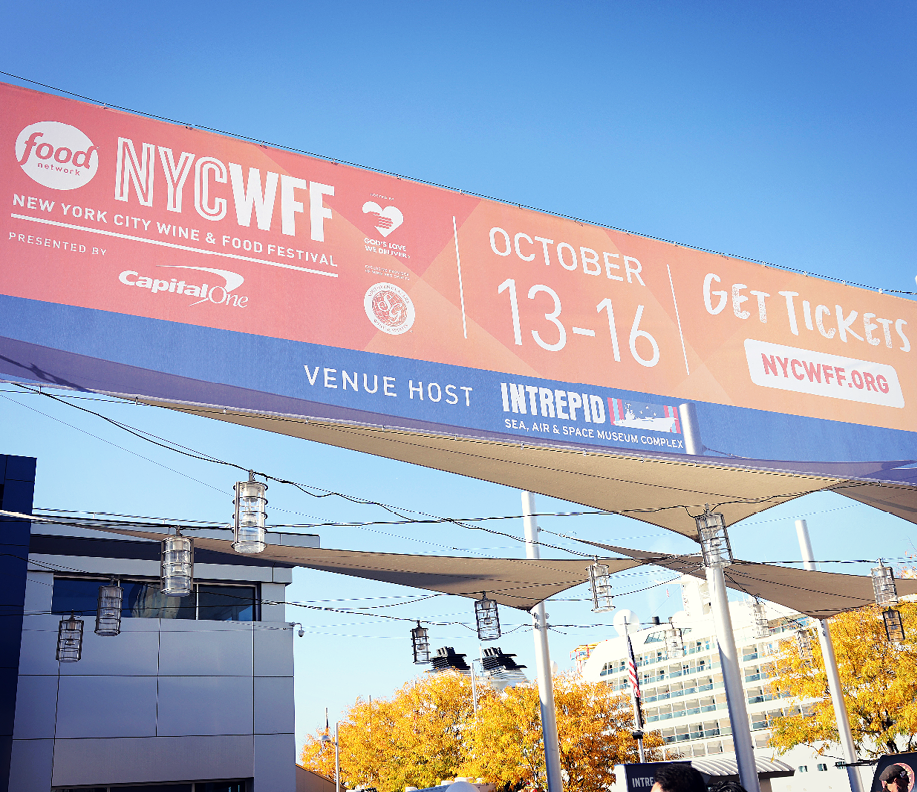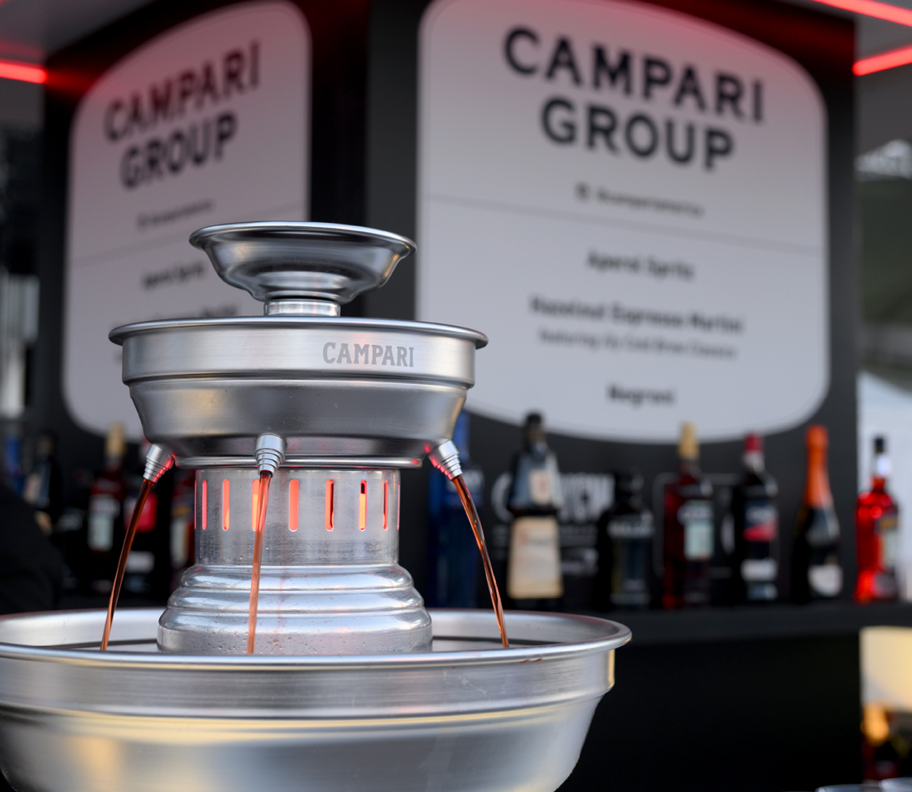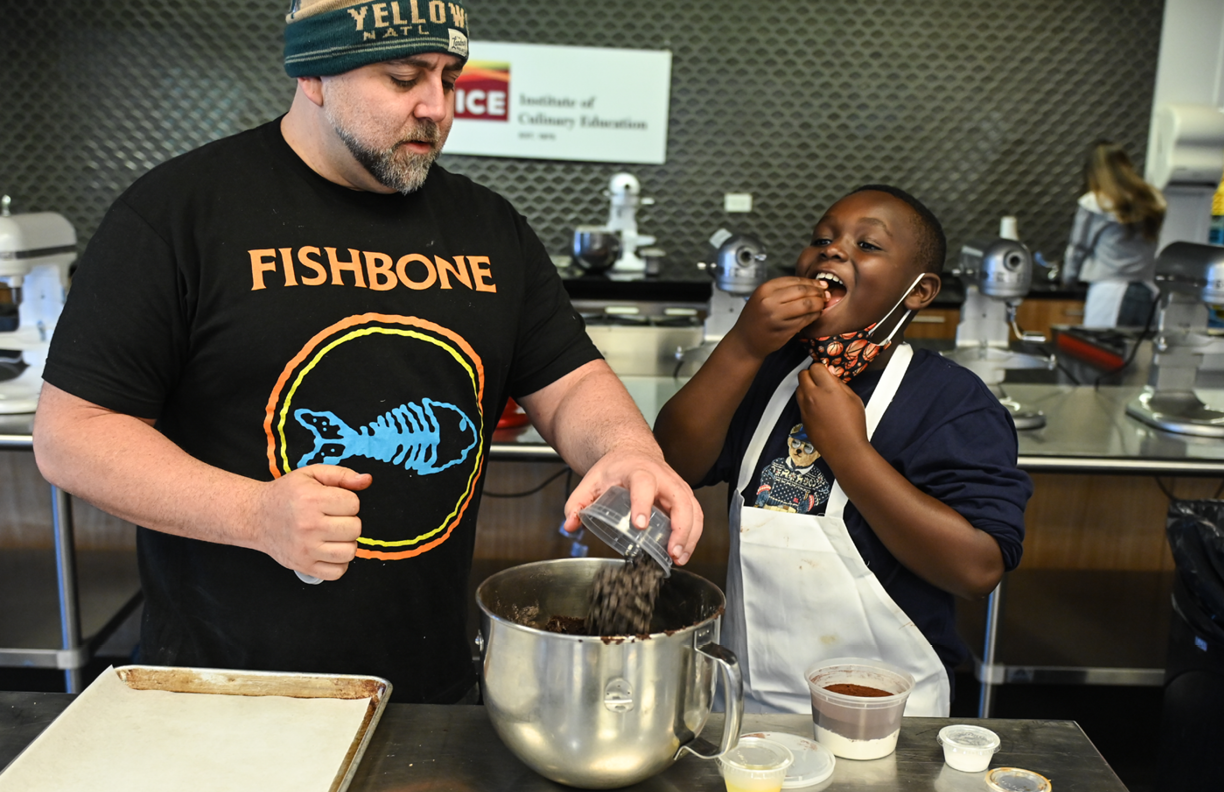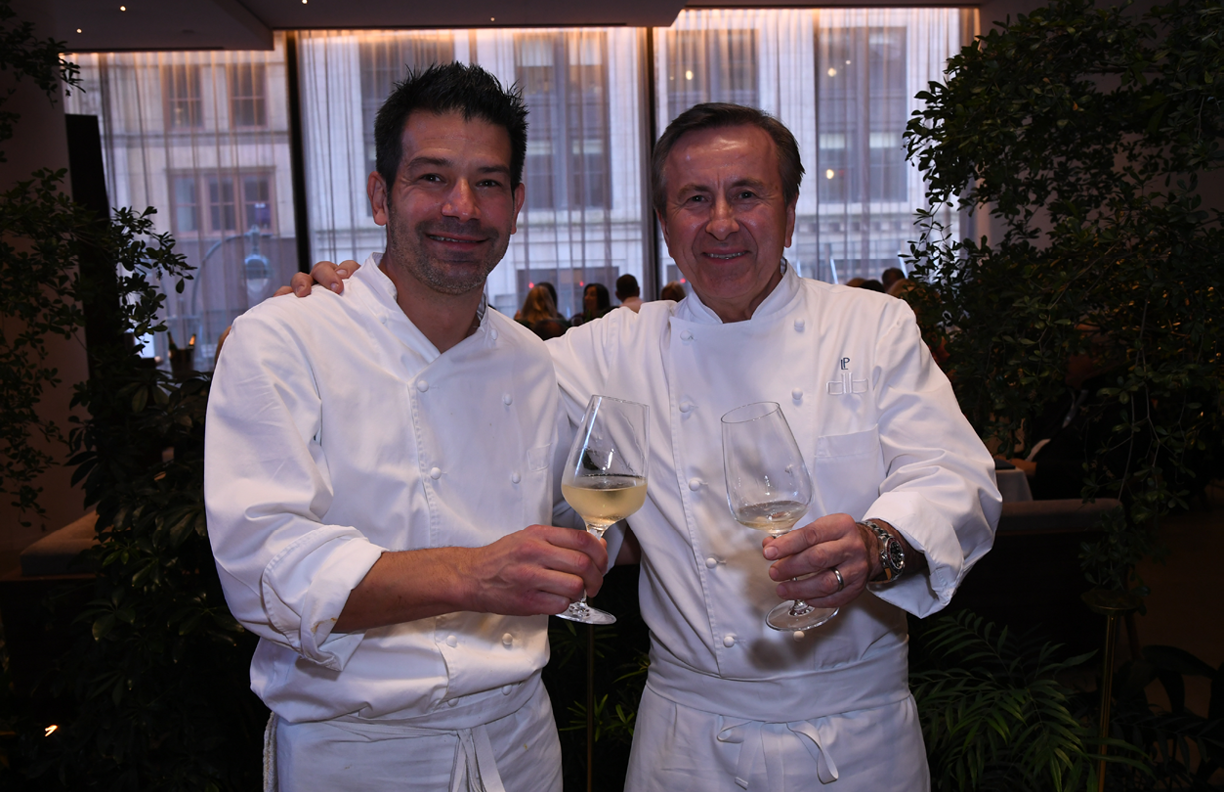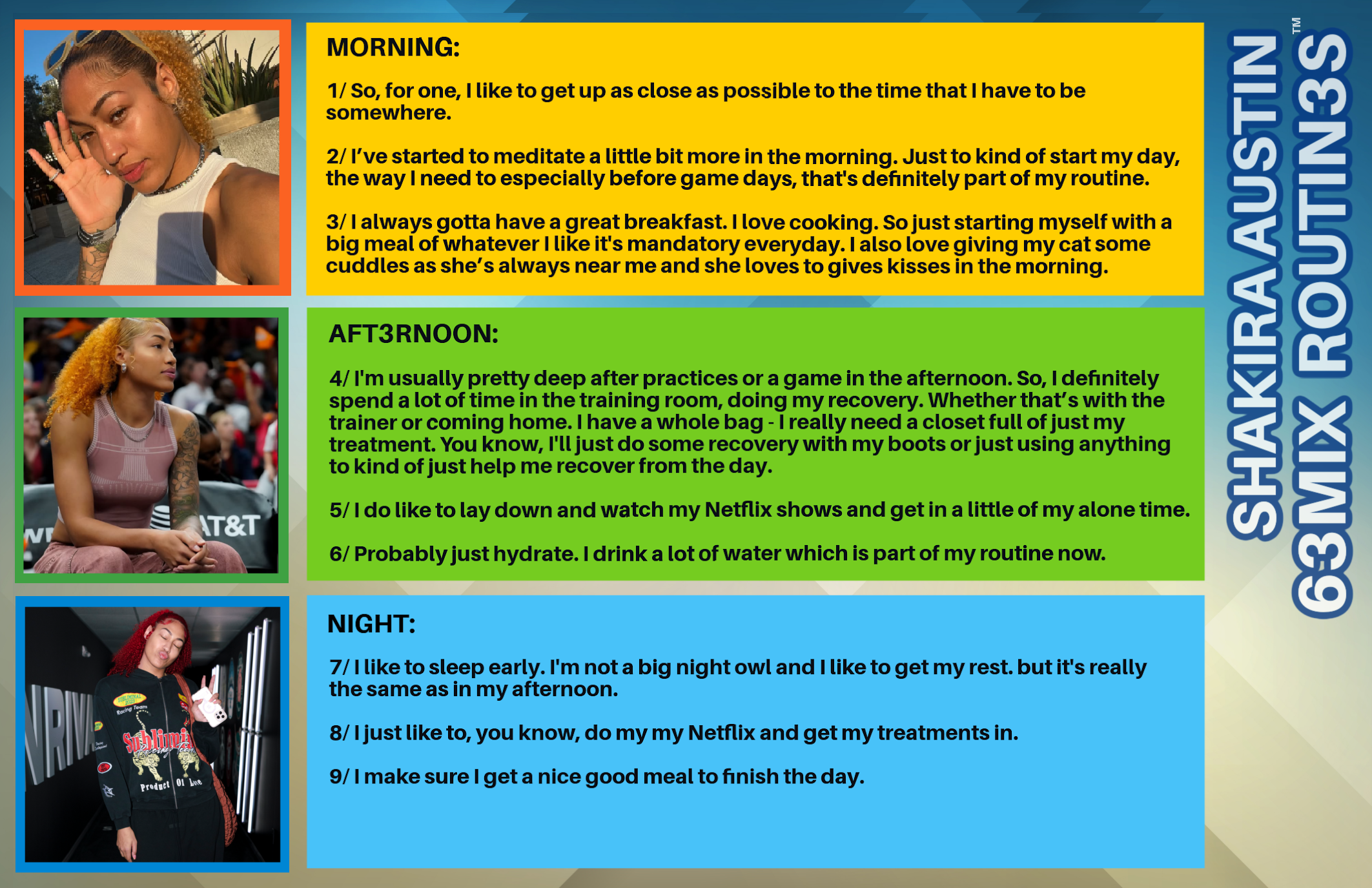AM: Exactly. You have worked in this industry for a number of years. What is your background and what led you to working in sports and specifically to the golf industry?
JT: I was in media sales for a long time out of Chicago and I remember very distinctly boarding a plane and it was one of those really small 19 seat planes and I was in Michigan and it was in Feb. and I thought that it was freezing cold and dark and I need to do something different. I started to think about what would be next for me and I thought that being an agent would be interesting and fun. So my easiest path in I thought would be women’s sports to become an agent. I thought that I didn’t want to travel all over the globe at that stage in my life so that eliminated tennis because they were playing a lot of their events globally and I thought that golf would be an interesting thing because it was very well established and sort of fit with the lifestyle of not being in freezing cold Michigan weather.
So I reached out to the Vice President of Business Affairs at that time and said, “If you ever need help with your television, I’d love to help.” We got through a bunch of conversations and lo and behold he became the Commissioner of the LPGA, a guy named Ty Votaw. So I went to go work with the LPGA initially and worked there for a long time. It’s a very entrepreneurial setting where if you can dream it, you can do it. I loved my first foray into golf through the LPGA and then my career progressed and I ended up working at the PGA TOUR first in Account Management and then in Global Sales. Then, in 2017, my path led me to a counterpart and a friend that had become the head of our Championship managed event that we own and operate a portfolio of events and he asked if I ever wanted to come and run a tournament within this group of events? That began my event management experience was in 2017. THE NORTHERN TRUST happened to be moving from LA to NY so it was a perfect time for me because I got a new title, we were playing new venues and so everything was new. I didn’t walk into a big legacy really even though this event has been played in and around this area for over 50 years!
AM: That is quite a journey. Before we get into THE NORTHERN TRUST, can you tell me about your role at the PGA and what your day-to-day is like?
JT: So, I’m the Executive Director which means that literally if you think about it like a CEO of a small business, every aspect of the event rolls up through me whether it's client relations, whether it's operations, local relationships with the city or the state – putting on an event like this you have to let everybody know you’re coming to town and make the appropriate accommodations, marketing, HR, everything under the sun. Now the great part about this is that if you think about it like a franchisee, I have the PGA TOUR in the backdrop that we’re owned and operated and I have those resources that I can tap into on a daily basis. But we’re pretty much in NY running our own show up here.
AM: As you mentioned, THE NORTHERN TRUST is over 50 years old, can you tell us about this tournament which is the first of 3 Fed Ex Cup Playoffs events? What makes this such an important event?
JT: This is probably one of the most competitive events in all of golf where players compete throughout the regular season to earn enough points to make it to the Playoffs. We are the first Playoff event as you said. So we only accept the top 125 players in the world. If somebody gets sick or decides that they don’t want to play this particular week, we will play with fewer people. We won’t bring anybody else in. Not only do they compete to get into this event, after this event, we will cut as the Playoffs progress as they go from this event to the second event it will go to 70 players. So for some number of players like 55 players, their season will end at the conclusion of our tournament at THE NORTHERN TRUST because they didn’t earn enough points to make it into the top 70. So that’s 1 and 2, we tend to be one of the largest global platforms first being in and around NYC which is a huge enough platform to begin with. This event is also televised in over 220 countries worldwide so it’s a really big stage that we're putting these guys on. Lastly, over the course of those 3 weeks, these players will pay for over the 3 week run between the bonus pool at the end and the 3 weeks of purses, almost a $100 million in prize money. So that in and of itself, the scale of the stage, the number of hours of television, the platform, the fact that their season could end – there is a lot at stake here that these guys are playing for. So, really competitive environments tend to produce memorable moments on the golf course.
AM: Wow that is very critical in the fact that you could be ending your season after that particular tournament. How far in advance do you begin working on a tournament like this and as we’re a few weeks away, what does your schedule look like leading up to it?
JT: This event typically rotates in and around NY and NJ and in 2020, we played in Boston. We start planning 18 months in advance for where we are going to be in the upcoming year while simultaneously completing the steps towards the current year’s event. We have to be building 2 events simultaneously.
AM: When people think of golf, they think about The Masters, The Players or The Open as opposed to thinking of a tournament that’s minutes away from NYC, what are the intricacies of having a PGA TOUR event in NYC?
JT: Yeah. Interestingly here a local NYer or someone from NJ that is from the area will tell you that convenience is key! You have to have an easy way to get to something no matter how compelling. Unlike some of these other places where you’re in Augusta, GA and it’s convenient and easy to get to once you’re on the grounds of Augusta – you’re pretty local there. Here we battle traffic and all of these other kinds of modes of transportation. I think in 2021 what you will see as fans is that we have made it more convenient to get to the tournament. This being our first time back since 2019, we learned a lot from our fans so parking will be easier, we’ll have our rideshare much closer, our Ferry will drop off at the Liberty National Port instead of at Port Liberté. It will be super easy to get the opening and closing holes. So we have made it more convenient – that’s 1.
2, I think that if you live in the area, you have access to pretty much anything that you could ever dream of from world-class food options to entertainment so we really have to try harder to make this a singular experience that is super memorable. So we have really held ourselves accountable to building something that we think will get people to come back time and time again and hopefully your experience proved that we’re working hard on that front.
AM: I thought it was awesome. We went to the Media Day the day before and took the ferry over that day. I thought it was really cool. Who would have thought that steps away from the city, we have a golf course that we can go to without having to go to other regions in the country. It was really well produced and I’m excited to see what this year will be like. When I think about the music festivals and fashion weeks that we have attended it’s always challenging to do them when you’re talking about doing them here!
JT: I totally agree and we’ve lived through every challenge. COVID being what it is, to have THE NORTHERN TRUST last year in Boston during COVID which I can’t think of anything that is more complicated and we successfully pulled that off so we learned a ton about running events in a COVID environment just like everybody did in running their businesses.
AM: Speaking to that, running any type of event during COVID is problematic. What was your approach last year to tackling it and being in a different locale and keeping in mind all of these other factors that were literally outside of your control?
JT: Well, first we had to determine what was going to be our North Star. Our North Star was always going to be safety. Safety of the players, safety of the fans, safety of the volunteers, of the staff and in every step. We decided that we were going to operate without fans because we didn’t know if we could effectively do it as there were a lot of unknowns about COVID, there were no vaccinations - we just didn't think that we could aggregate people in a safe way. We knew that with the areas with the population of people and volunteer staff and players, that we could control how they could engage, we could control social distancing safety measures. So safety was always going to be our North Star. The second part of this and I think with anything that you’re going through with a crisis, is communication. We over communicated to everybody, the league, we communicated to the state and health officials. We over communicated with people and brought everybody into the process so that they could transparently see what we were planning to do and to advise us if we were going down a bad path. It helped us to be able to play in a time where most sports were unable to. We were really excited to be able to do that and to deliver to fans so that they could at least watch it on TV.

